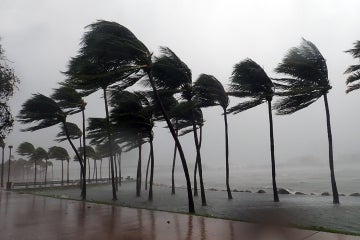
Cyberbullying pervasive among public school students
Published: September 22, 2015
A major new U of T study on cyberbullying suggests that when young people are “sexting” only the girls are getting blamed.
Professor Faye Mishna, dean of the Factor-Inwentash Faculty of Social Work, has completed a three-year study on cyberbullying based on interviews with students, parents and teachers in schools in the Toronto District School Board.
Face-to-face interviews were completed with children and adolescents from ages eight to 18. These students were in Grades 4, 7 or 10 at the start of the study, and were interviewed twice over the three years.
Findings clearly indicate that cyberbullying is going on everywhere and that “we have to change the way we look at it,” Mishna told U of T News.
One of the interviews that stood out for Mishna was with a girl in Grade 4 who said that girls call each other sluts. “I don’t know what it means but I know it has something to do with being ugly,” this girl added.
“Nasty texts, sexual images, seem to be more of the norm,” Mishna said. “The other thing we found that is very interesting and disturbing is that the girls are getting blamed.”
Girls may send private or explicit pictures to boys, but only girls are blamed for having poor judgment when boys (who may have pressured them) post these images on the internet. Adults also seem to think that cyberbullying is primarily a “girl problem,” despite evidence that both sexes participate actively in such behaviour online.
The study also found that children conceal their texting activities from adults. “The takeaway message we have is: You can no longer just say ‘don’t do it.’ Don’t do it just means they aren’t going to tell you.”
Mishna listed several television shows that convey the message that “sexting” is permissible, including Homeland, Glee, Pretty Little Liars, Revenge, House of Cards, Orange is the New Black and Degrassi. “So on the one hand people are saying don’t do it, but the message from mainstream television is that it is an option with few consequences.”
Mixed messages are leading to a widespread “disconnect,” Mishna said. “We need to have a bigger conversation about cyberbullying – less about not doing it and more about dealing with it.”
This conversation should embrace all the complexities of the phenomenon of cyberbullying, including societal norms, stereotypes, media depictions and relationships.
One of the findings in the study centred around “gender policing,” which has become common. “It’s kids keeping track of how girls in particular dress, how they act, how they don’t wear enough clothes, or wear too many clothes – it can easily become a form of cyberbullying.”
People also often overlook the impact of online gaming, Mishna said. Boys who don’t do well are often called offensive names. Cyberbullying goes on there often.
Traditional bullying also remains prevalent, the study found. And what adults might consider cyberbullying, kids regard as a normal part of online communication. “Boys call it trash talk,” Mishna said. “Girls call it drama.”
The study involved 670 students, 246 parents and 103 teachers. More than 20 schools were involved and 423 students and 95 parents were interviewed in all three years of the study.
Eighteen per cent of youth in Toronto public schools self-identify as in distress
Published in the scientific journal Children and Youth Services Review, “Students in distress: Unanticipated findings in a cyberbullying study” (by Faye Mishna, Kaitlin J. Schwan, Rachael Lefebvre, Payal Bhole and David Johnston) draws on the findings of the first year of the three-year study. Researchers found 18 per cent of youths in Toronto public schools self-identify as being in distress and many don’t tell the adults in their lives.
The paper reported that 122 of 669 students in Grades, 4, 7 and 10 were in distress.
This finding is consistent with the level of distress found in the Ontario Child Health Study, one of the largest studies on children’s mental health ever conducted.
Female students were more likely to be distress than males. Twenty-seven per cent of participating students with a disability were in distress and more than half of those who identified as non-heterosexual were in distress.
A major theme that emerged was the frequency with which students had not disclosed their distress to adults in their lives, either to protect themselves, protect others or because they didn’t believe the adult’s advice or help would be effective.
The researchers were concerned that “students often felt that the costs of disclosing distress outweighed the potential benefits.”
The study concluded that “the sheer number of students who had not previously told adults about their distress and who did not appear to have adequate strategies and resources to cope with their distress indicates that social work services must be highly visible and readily and easily accessible to students.”
Research is needed to understand how to provide access to social services in ways which feel safe, empowering and easy for students, the report said.



